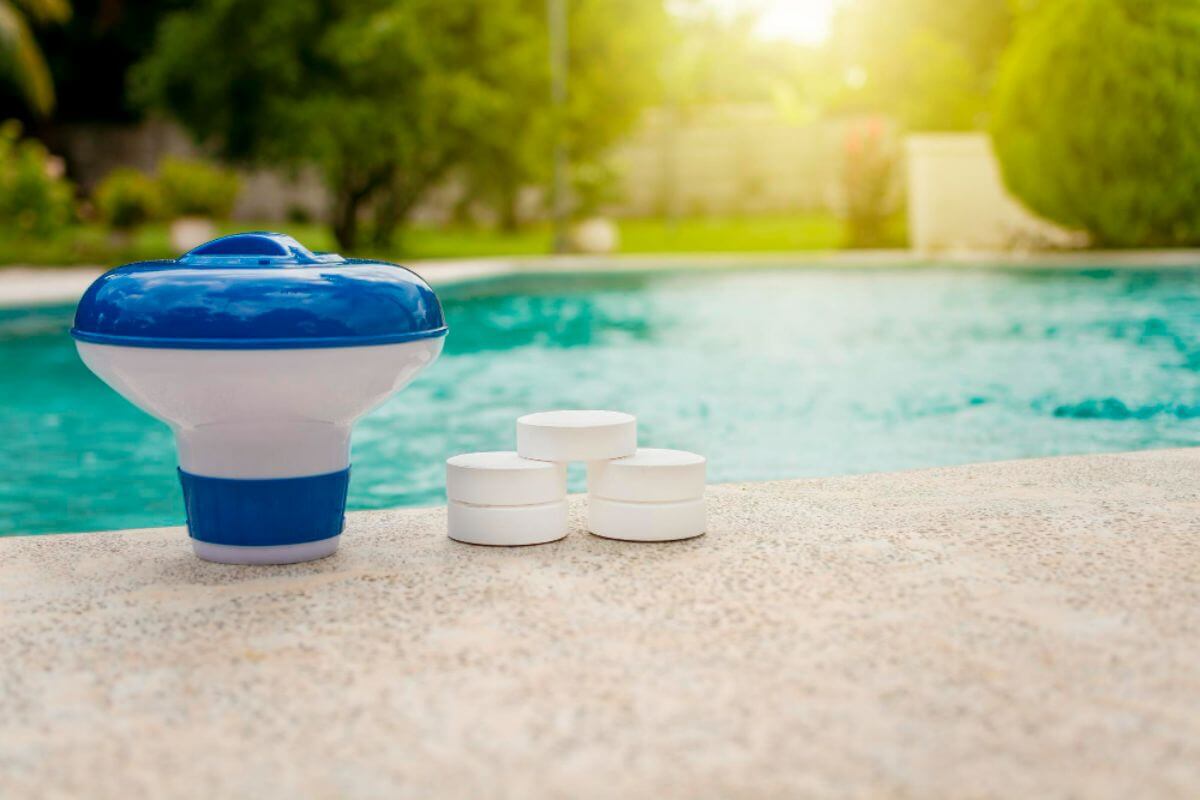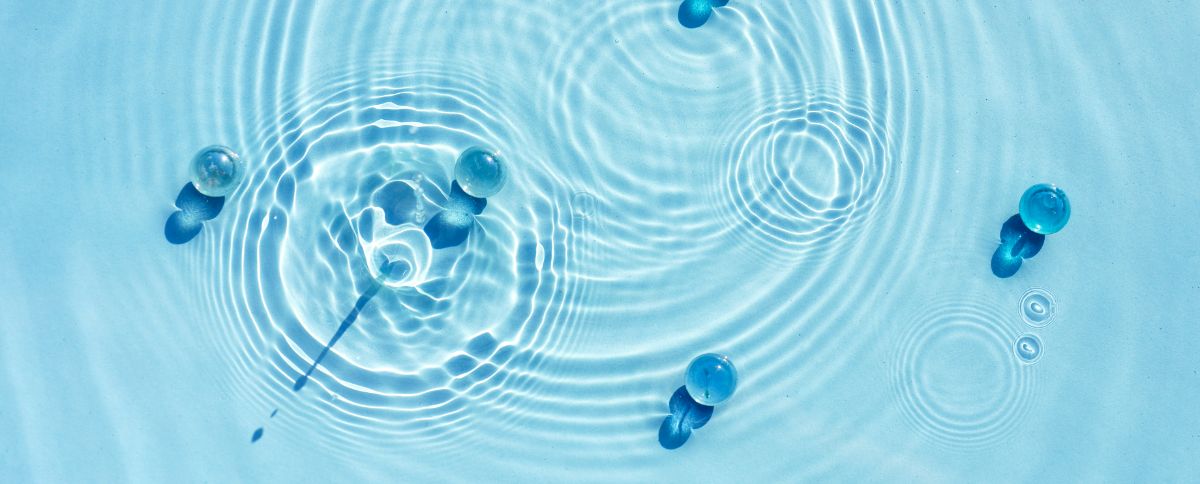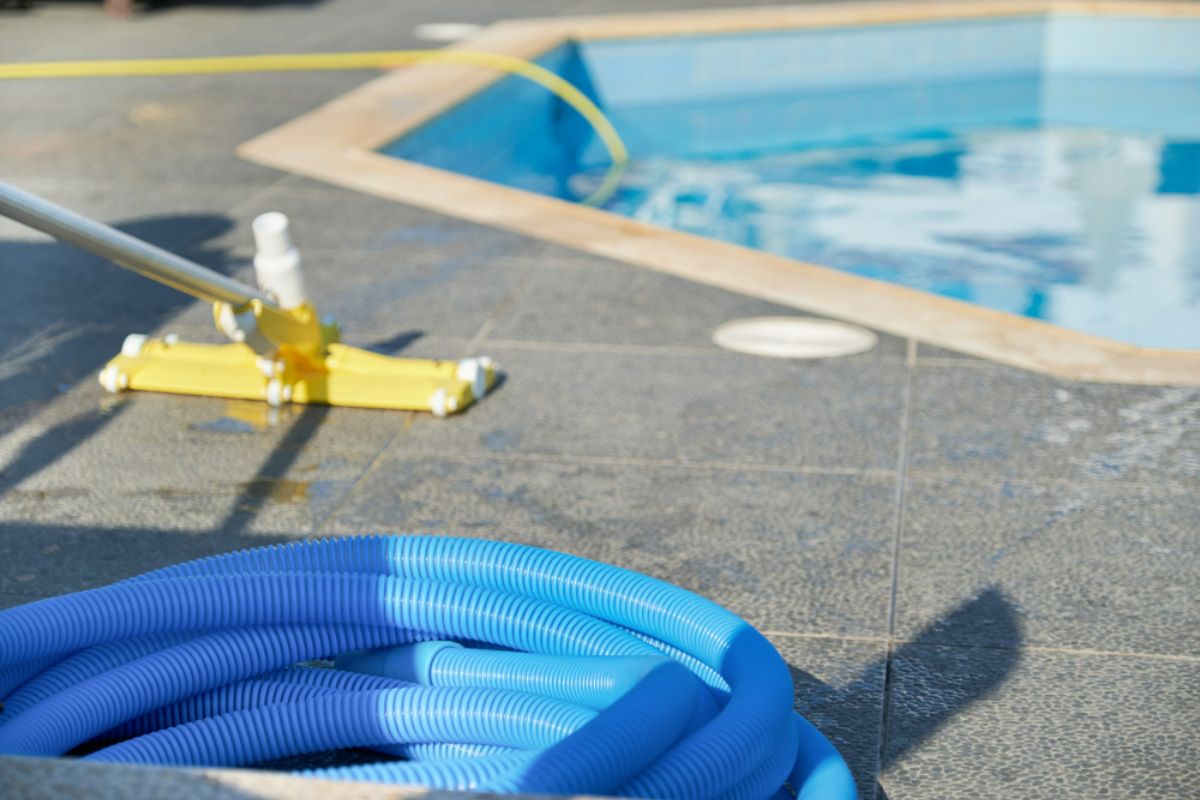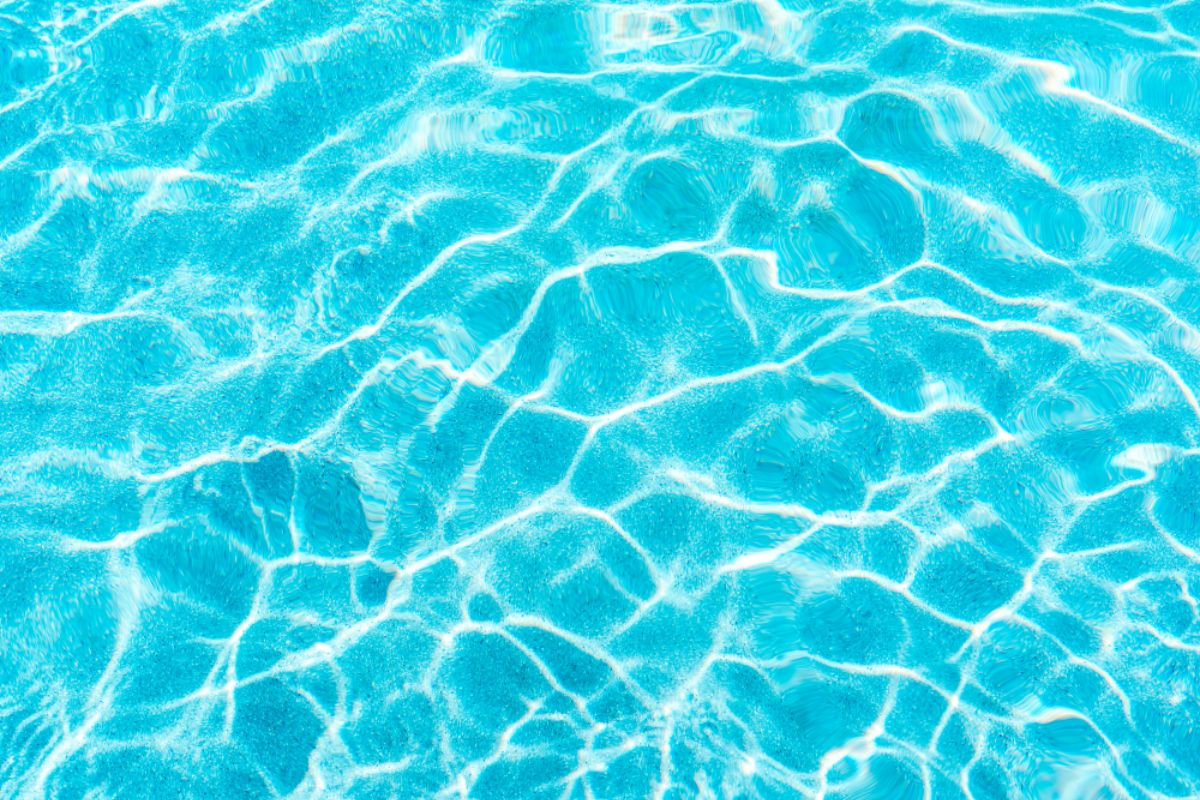How do you store chlorine properly?
- Use protective gear, mask, goggles, and gloves when storing chlorine
- Store it in its original container in a cool, dark, dry place
- Reseal the lid to the container after every use
- Make sure the room where chlorine is stored has proper ventilation
- Keep it away from flammable items
- Keep it in a completely separate place from other pool chemicals
Properly storing chlorine is crucial for both pool owners and professionals. As a powerful chemical used for pool sanitation, chlorine requires careful handling and storage to maintain its effectiveness and ensure safety.
In this article, we’ll explore essential guidelines on how to properly store chlorine. By following these storage practices, you can ensure the longevity and effectiveness of your chlorine supply while minimizing potential risks.
Use Protective Gear, Mask, Goggles, and Gloves When Storing Chlorine
Remember that there are always safety precautions when handling chemicals. That’s why it’s important to be safe when handling chlorine. When storing chlorine, always wear proper protective gear, including a mask, goggles, and gloves.
A mask helps prevent inhalation of chlorine fumes, which can be harmful to your respiratory system, while goggles shield your eyes from potential splashes or contact with chlorine, which can cause irritation or damage. You should also never neglect wearing gloves since this provides you with a barrier between your skin and the chemical, reducing the risk of skin irritation or burns.
Prioritize safety by consistently using the recommended protective gear whenever handling, transferring, or storing chlorine, ensuring a safer environment for you and those around you.
Store It in Its Original Container in a Cool, Dark, Dry Place
To keep the chlorine in good condition, it’s important to store it in a dry and clean environment that is cool and dark. Avoid exposing it to direct sunlight as it can be detrimental to the chlorine’s quality and even cause dangerous reactions.
Transferring or switching chlorine containers can pose hazards, making it essential to prioritize safety. To mitigate risks, it is crucial to consistently use the original container with a clear and readable label. This practice helps prevent accidental mix-ups with other essential pool chemicals, which could potentially lead to dangerous situations.
By adhering to the use of the original container, you can ensure proper identification and minimize the chances of unintended chemical reactions or incorrect usage. Prioritizing caution and sticking to the original container is a crucial step in maintaining a safe environment while working with chlorine.
Reseal the Lid to the Container after Every Use

After using chlorine, it is crucial to reseal the lid tightly on the container. This simple yet important step helps maintain the quality and effectiveness of the chlorine. Resealing the lid prevents moisture and air from entering the container, which can cause degradation of the chemical over time.
Properly sealed containers also reduce the risk of accidental spills or leaks, ensuring a safer storage environment. By consistently resealing the lid after each use, you can extend the shelf life of your chlorine and ensure its potency when needed.
Make it a habit to secure the container tightly, safeguarding the quality and longevity of your chlorine supply.
Make Sure the Room Where Chlorine is Stored has Proper Ventilation
When storing chlorine, it is crucial to ensure that the room or area has proper ventilation. Adequate ventilation helps maintain a safe environment by preventing the accumulation of potentially harmful fumes or gases. Chlorine can release fumes that may be irritating or even hazardous if inhaled in high concentrations.
To promote proper ventilation, ensure the storage area has windows or vents to allow fresh air circulation. Additionally, avoid storing chlorine in enclosed spaces or near heat sources.
Keep It Away from Flammable Items
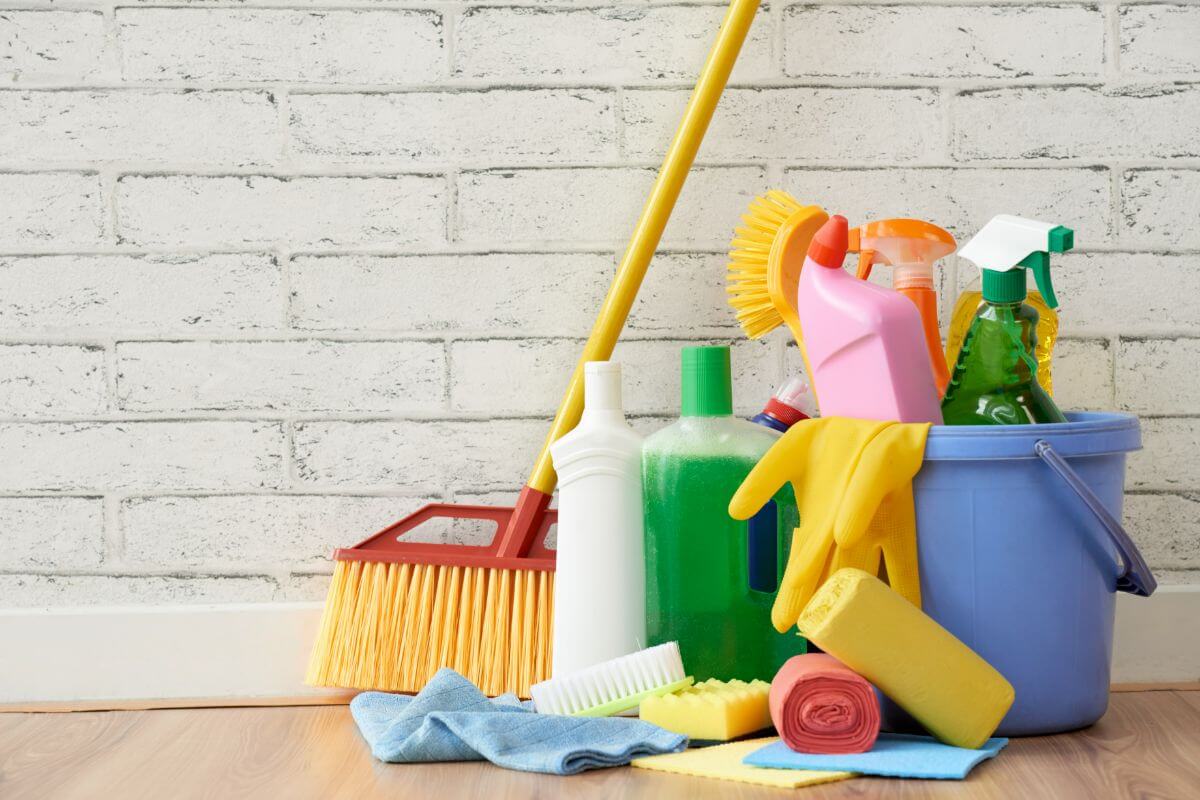
Finding a well-ventilated outdoor storage area that is free from flammable materials is crucial. Ensure the chosen location allows for proper air circulation to prevent the accumulation of potentially harmful fumes.
Your storage area should be positioned away from any sources of heat, such as fire pits or grills, to prevent any potential combustion. By maintaining this separation, you prioritize safety and reduce the likelihood of dangerous incidents in the storage area.
Keep It in a Completely Separate Place from Other Pool Chemicals
Keeping chlorine separated from other substances is crucial to prevent any unexpected chemical reactions. Mixing chlorine with other types of acid, for example, can lead to the production of chlorine gas, which can be dangerous if inhaled at concentrated levels for more than 30 minutes.
Here are the substances that should never be put together in a storage area with chlorine:
- Ammonia
- Acid
- Vinegar
- Rubbing alcohol
- Gasoline
- Hydrogen peroxide
- Any household cleaning product
- Various forms of chlorine (do not store chlorine granules and liquid chlorine in one place)
Key Takeaway
Proper storage of chlorine is critical to ensure the safety of your loved ones while keeping your swimming pool enjoyable. Always remember to store it in a cool, dry, and ventilated area away from direct sunlight and sources of heat. Keep it locked and away from children and pets, and never mix it with other chemicals.
We hope you’ve answered everything you need to know on how to properly store chlorine. At Oktakem Trading, we stock a list of chlorine products for your swimming pool needs. Don’t hesitate to contact our team here for any inquiries about our swimming pool chemical products in the Philippines.







